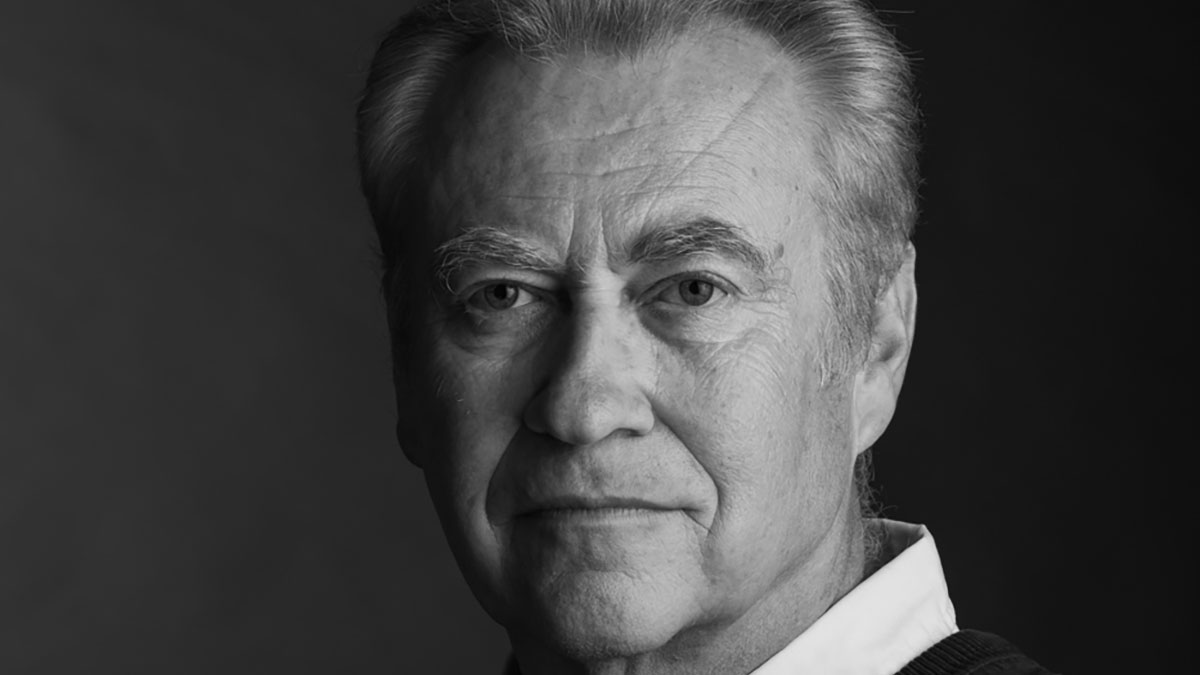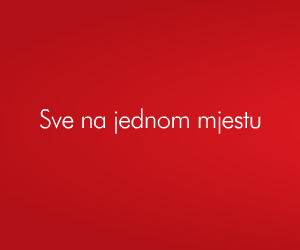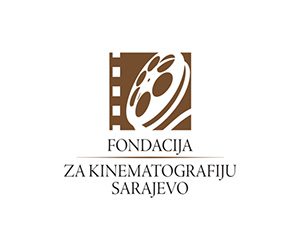
06/10/2025
Youth, avoid trends, don't imitate. Try to be yourself. It's not easy, but it's worth it!
Croatian director Zrinko Ogresta is back in Široki Brijeg after 23 years as a member of the jury, together with his colleagues, Branka Bešević Gajić and Toni Cahunek, who will evaluate and choose the Grand Prix of the Mediterranean Film Festival. In the interview for Večernji list, Ogresta recalls the beginnings of this festival, emphasising the enthusiasm and excellent organisation, and today, as it celebrates its 26th edition, it has become one of the most important international festivals dedicated to documentary film. The director considers that MFF has proven its significance on the regional and European film scene, and coming to Široki Brijeg is especially emotional for him, given that he has roots in Herzegovina.
You are again in Široki Brijeg, at the Mediterranean Film Festival, and as a member of the jury. What memories do you have from 2003, when you were the chairman of the jury at its first edition?
Even then, in its first, somewhat different form than today, the festival offered a quality program, and I was particularly impressed by the interest and attendance of the audience. Although it was the first edition of the festival, the organisation was at an exceptional level and everything was bursting with enthusiasm. Considering the fact that my maternal roots are also from Herzegovina, she comes from the Čilić family from Međugorje, all this was very emotional for me.
The festival is marking its 26th edition these days. How do you perceive its continuity and its role in the regional and European festival network?
It seems to me that this is a significant international festival –the most important one in Bosnia and Herzegovina when it comes to documentary film. To attain and maintain that status, the festival had to improve its selection criteria and organisational level over the years, and from what I’ve seen, it has systematically been doing that.
As a member of the jury, what will you pay particular attention to when evaluating the films, and how would you evaluate the program in competition?
In evaluating the value of a film, what the filmmaker presents and how they present it is always of primary importance. At the same time, every film inevitably reveals the sincerity and authenticity of the filmmaker’s intentions. We are living in a time when films, both fiction and documentary, are saturated with content that is “in fashion” - content that is often used by some authors to possibly achieve some kind of festival success. Of course, this sometimes happens. However, festival success can never guarantee the life of a film if it is not authentic, of high quality, and an expression of a sincere creative and authorial need of its creator. The history of film is full of award-winning films that were later forgotten. And, on the contrary, there are so many films that missed out on important awards, but remained a permanent cultural heritage of national and world cinema. For example, if we stick to the field of fiction films, it is interesting to note that one of the world's greatest directors, Alfred Hitchcock, was never awarded an Oscar for directing, despite being nominated five times. This year’s program in Široki Brijeg undoubtedly offers a line of high-quality films.
In your films, you often explore the emotional and psychological breakdowns of the characters, revealing what is hidden behind the "bourgeois facade". How important is it that the films we watch and award today also carry this social and psychological depth?
Perhaps I am being subjective, but I would say it is more important than ever. Indeed, we live in a time of tremendous superficiality. In everything. Content is often shaped in a hurry, without a thorough knowledge and understanding of the problems they want to address. This is evident in all forms of art, film being no exception. The fact that film technology has become accessible to almost everyone means that nearly anyone who decides to make a film today actually can, as the technical prerequisites for filmmaking are now widely available and relatively affordable. This accessibility has brought many positive aspects to the field of film, but I would say it has also brought just as many negatives. Intellectual and cinematic erudition used to be almost a prerequisite for filmmakers, especially the greatest among them. Today, however, it is no longer an essential condition.
In the context of your body of work—from “Krhotine” through “Crvena prašina“, “Tu”, “S one strane“, and up to “Plavi cvijet”—both audiences and critics often highlight your strong visual style and innovative storytelling. Which film is your personal favourite or most important in a creative sense?
This is a question that every author is reluctant to answer because each one has a part of their personality, worldview, content, and aesthetic preferences woven into it, and I am no exception in that sense.
You are the winner of numerous domestic and international awards, including the Vladimir Nazor Lifetime Achievement Award. How do you feel about the fact that your work is already recognised as a canonical part of Croatian cinema?
That fact, in itself, sounds nice, but I don’t get carried away by it. As I’ve already mentioned, we are becoming more and more superficial — and this is a global trend. We know and remember less and less, and no author, whether in film or any other field, should get carried away by their importance to the culture of a particular environment or community. I often think of numerous Croatian and international authors who are quickly forgotten by their own and wider communities. Even those who are alive! They are only remembered when they pass away. If you just concentrate on Croatian film, when was the last time you read anything about the work of the outstanding Croatian actress Božidarka Frait or about key works of director Antun Vrdoljak? Both have made a lasting contribution to Croatian culture. Furthermore, Croatian literature was impoverished a little less than two years ago by the departure of Danijel Dragojević, a poet who is not only the pinnacle of Croatian poetry, but also of European poetry. If you conducted a survey, even among so-called intellectuals, I doubt many would know who we're talking about, and even fewer would be familiar with his poetry. For authors of true quality, the only real comfort lies in the fact that the value of their work cannot be undone. Not even by time. Sooner or later, a moment comes when someone from a future generation stumbles upon the work, or works, of valuable artists, who are no longer with us, and in that moment, they are “resurrected.”
As a professor at the Academy of Dramatic Arts in Zagreb and at VERN University, you are in constant contact with the younger generations of filmmakers. What are their main interests, and in what ways does their view of cinema differ from yours at the beginning of your career?
First of all, it should be emphasised that every era brings forth its own talents. The role of the communities they live and create in is to recognise them and encourage their work. Due to the increasing superficiality that I have already described, this process seems somewhat compromised to me. True values are harder to detect, and if an author wins an “honour”, an award, their work can easily go unnoticed, even if it is truly high quality. It seems to me that, in that sense, things used to be better in all artistic fields. If I were to try to define a fundamental difference in the artistic approaches of newer generations compared to previous ones, it would perhaps be the significantly greater focus of new creators on themselves, on their personal problems, which very often become the exclusive content of their works. Before, and I include myself in that group, the authors used their works to refer significantly more to time and life in the environments they belong to. It’s as if, in their works, which were certainly always personal since art cannot be otherwise, they tried to depict and record the socio-political moment in which the work was created. Watching such films several or many years after they were made, a contemporary viewer can clearly experience that time, get to know it, and feel it. Perhaps even understand it. In this sense, I have personal experiences as well. The film I made in 1999, “Crvena prašina”, is probably the most-watched Croatian film on the internet today, and perhaps even among the countries in the region. The reactions of generations of viewers who watch that film today, people who weren’t even born when the film was made, are truly remarkable. Almost all of them understand the film very well, are emotionally touched by it, and recommend it to others.
Croatian cinema has been experiencing a certain momentum on the international scene in recent years. How do you see this from the perspective of a director and member of the European Film Academy?
That fact is undoubtedly very good for our cinema. It has highlighted several very gifted authors, but it has also highlighted some whose works do not justify such attention. For the most part, these are the authors whose “success” could be attributed to the general superficiality I mentioned, and a trend-driven approach to content that is “in fashion.” However, such flashes are short-lived.
Your films frequently analyse the social and political forces that shape everyday life. How do you view the importance of film today as a mirror reflecting society?
Film has always been a medium through which certain ideas and worldviews are promoted. However, it seems to me that this was done somewhat more subtly or with greater artistic talent in the past. I’m speaking, of course, in general terms. Today, I encounter a much larger number of films whose ideological dimension overshadows the film itself as a work of art; the primary goal is to promote the idea, while the creative quality becomes secondary. However, perhaps I am being too subjective in this assessment, it’s human nature to value what’s behind us more as time goes by.
To what extent are international festivals like Berlin, Venice, or Karlovy Vary important for your creative work? Are they still crucial for the affirmation of authors from our area?
They are important. In the past, maybe even more important than today. Before, if you didn't have an internationally recognised film, it was very difficult to reach the audience. It is important today, but not crucial. Social networks have reached such an impact that screenings or awards at an important festival don't have.
How difficult is it to balance between authorial expression and communication with the audience? Is there a moment when you had to make a compromise?
No, there isn’t. If you strive to be extremely honest in your creative approach, your work, assuming it is professionally relevant, will always find a wide enough audience who will want to see it.
What projects are you currently working on, and what do you focus on today as an author?
I am preparing a play with Gavella Theatre. In April next year, God willing, I am expected to make my debut as a theatre director. It is a dramatisation of the famous novel of contemporary Croatian literature “Mirisi, zlato i tamjan“ by Slobodan Novak. The level of my enthusiasm for this new field I am entering is proportional to the level of my nervousness.
What message would you give to young filmmakers who might be sitting in your place tomorrow, on juries, or presenting their films to an audience in Široki Brijeg?
Avoid trends, don't imitate. Try to be yourself. It's not easy, but it's worth it.


